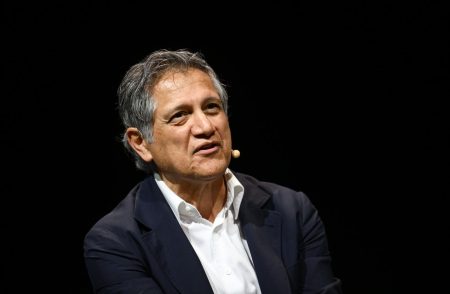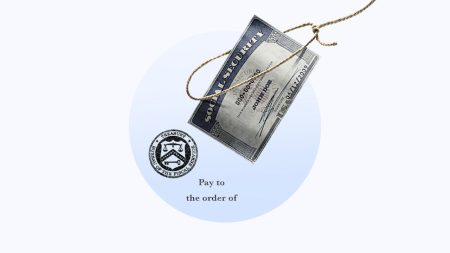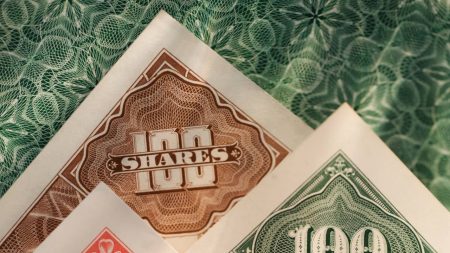Mutual funds are one of the most popular investments, offering many benefits to investors. But buying and selling mutual funds can be confusing, especially for new investors. There are thousands of funds to choose from, several different fees to consider, and mutual funds trade differently from other popular securities such as stocks and exchange-traded funds (ETFs).
Here’s what you should know about how to trade mutual funds.
How to buy mutual fund shares
Mutual funds don’t trade like stocks and ETFs, which can be bought and sold at any time during the trading day. Mutual funds can only be bought and sold after the market closes at the fund’s net asset value (NAV). Mutual fund shares are purchased and redeemed directly from the fund, unlike stocks where you’re buying from another market participant.
Mutual funds can be bought through an online broker or directly through the company managing the fund. Most mutual funds require a minimum investment of a few thousand dollars, whereas many stocks and ETFs can be purchased for the cost of a single share, or even less if your broker offers fractional shares trading.
Some mutual funds may close to new investors if they’ve grown to a size where managing the fund becomes difficult, or if the portfolio manager thinks it will be difficult to find attractive investments for a larger fund.
Picking the best mutual fund for you
Choosing the right mutual fund can be intimidating. There are thousands of different funds to choose from and different categories to sift through. You’ll want to think about the type of fund you’re looking for based on your investment goals.
When you find a fund you’re interested in, be sure to read through the fund’s prospectus, which can be found on the fund’s website or through your broker. Pay special attention to the fees you’ll be paying, as they can eat into the return you ultimately earn as an investor.
Stock funds are great for long-term goals such as retirement or college savings, while bond or money market funds are best for short-term goals such as saving for a down payment on a house or buying a car.
Index funds are one of the most popular investments because of their low costs and diversification benefits. Index funds hold stocks or bonds that are included in market indices such as the S&P 500 or the Russell 2000. The funds are managed based on the underlying index, so there is no expensive portfolio manager or team of analysts making investment decisions. Index funds have outperformed most actively managed funds over time.
When to buy and sell mutual funds
Mutual funds only trade once a day, after the market closes at the fund’s NAV. So, you won’t be trading in and out of mutual funds the way you might be with stocks or ETFs. Keep in mind that if you place a trade after the market has closed, you’ll receive the next day’s closing NAV as your price.
In fact, most mutual funds aren’t really designed to be trading vehicles, but rather are meant to be held as long-term investments. Some funds, such as money market mutual funds, can be held for short periods of time, but if you’re buying stock mutual funds, you’ll want to focus on holding them for the long term. There can be fees associated with the buying and selling of mutual funds and you can end up paying more if you hold the fund for a short period of time.
Mutual fund fees
While they might seem small, fees can really add up over time and they come directly out of the return you’ll earn on your investments. Here are some of the major fees to be aware of when investing in mutual funds:
- Management fee: The management fee pays for the fund’s managers and investment advisor.
- 12b-1 fees: These pesky fees cover the costs of marketing and selling the fund.
- Other expenses: A variety of other expenses fall into this category such as legal, accounting and other administrative costs.
- Loads: Some funds charge loads, or commissions, which are paid to brokers at the time the fund is bought or sold. Front-end loads are charged when a fund is purchased, while a back-end load is charged during the sale of the fund. A back-end load may decline the longer you hold the fund’s shares. Funds that don’t charge these commissions are known as no-load funds.
Many of these fees are captured in the fund’s expense ratio. Index funds typically come with expense ratios of less than 0.10 percent, while actively managed funds can cost 1 percent or more.
Investors can avoid funds with loads by searching carefully on their broker’s platform or through other investment research services. You won’t have to give up anything in performance by choosing a no-load fund, but you’ll gain a little by not having to pay the charge.
Trade and settlement dates
The trade date will be recognized as the date you placed your order to buy or sell shares, but the trade isn’t considered final until settlement a couple days later.
Since 2017, the settlement cycle – or the time between the transaction date and the settlement date – for most mutual funds was two business days – often referred to as “T+2.”
Starting in May 2024, the Securities and Exchange Commission moved to a new “T+1” settlement cycle. Now, mutual fund trades are settled within one business day of the trade date. If you place a trade on a Monday, your trade will settle by Tuesday, but Friday trade dates aren’t required to be settled until Monday because trades aren’t settled over the weekend.
Selling mutual fund shares
Mutual fund shares are sold the same way that they’re bought: either through the fund company directly or through your broker. You’ll receive the next available net asset value as your price for each share sold. You’ll also have to pay any applicable fees or charges.
If the fund charges a back-end load, you’ll pay this as part of the sale. Depending on how long you’ve held the fund, the charge may decline or be eliminated altogether.
Early redemption rules
Because mutual funds are intended to be held as long-term investments, the trading in and out of funds causes additional expenses and complexity for the fund’s manager and other shareholders. As a result, many funds impose fees for early redemptions.
These fees are typically charged if you buy and sell shares in the fund within 30 days and can run up to 2 percent of the sale price. Unlike the sales load, which goes to a broker selling the fund, the redemption fee goes directly to the fund. A fund might also prevent you from trading its shares for a period of time if you redeem early.
Bottom line
Mutual funds are fairly simple to trade once you know what makes them different from other investments, such as stocks and ETFs. Because mutual funds are intended to be long-term investments, it’s not necessary for them to be available to trade every second of the trading day. Be sure to understand the different fees associated with mutual funds, especially when selling, which will eat away at your investment returns.
Editorial Disclaimer: All investors are advised to conduct their own independent research into investment strategies before making an investment decision. In addition, investors are advised that past investment product performance is no guarantee of future price appreciation.
Read the full article here
















